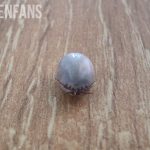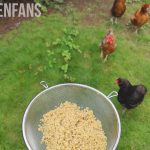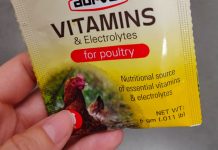Can Chickens Drink Milk? (Soy, Oat, Chocolate…)
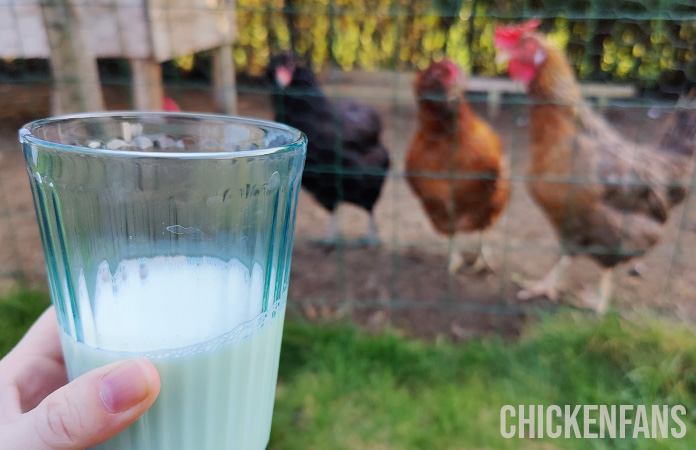

Milk is considered a great source of calcium, and it’s logical to believe that it would benefit chickens, who need calcium for their health and egg production. However, things are not as straightforward as they seem. Despite its high calcium content, milk is not the optimal choice for chicken nutrition.
This article will comprehensively overview chickens and their relationship with milk.
Can Chickens Drink Milk?
Theoretically speaking, yes, chickens can drink milk. But milk is not the healthiest option for chickens, despite being loaded with calcium. Chickens are poultry and do not need milk to stay healthy. Large amounts of milk can even pose a danger to a chicken’s health.
Milk is a good source of several nutrients, including high-quality protein, vitamins (riboflavin or B2), and minerals (calcium).
Protein is crucial for growth and well-being. Riboflavin plays a key role in numerous bodily functions and is crucial for producing strong, healthy eggs. Calcium, on the other hand, is the building block for egg production and the formation of eggshells.
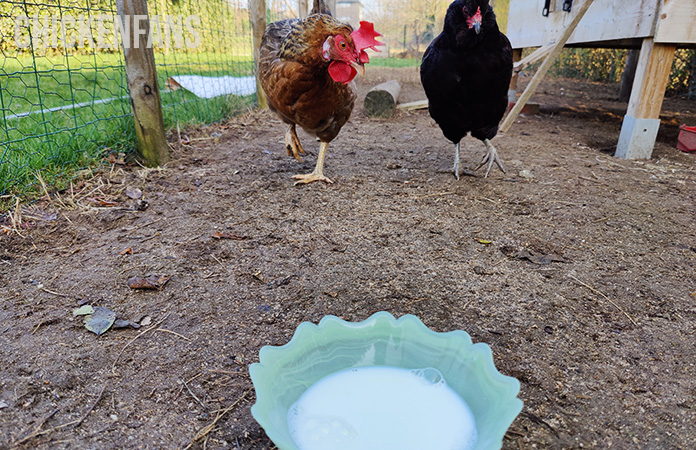
Do Chickens Like Milk?
Yes, chickens like the taste of milk. They have an indiscriminate appetite and tend to eat what they are given. They also like the taste of milk. This could be seen as a convenient characteristic; however, it also leads to the potential for overeating.
In theory, providing milk to chickens appears to be a good idea. However, milk is not the most appropriate food choice for them. Chickens, being part of the Aves class, are poultry and do not require milk in their diet.
To fulfill the nutritional requirements of chickens, a large amount of milk would need to be consumed, which can harm their health. In essence, offering excessive amounts of milk is not recommended for chicken nutrition. Excessive consumption of milk can lead to diarrhea. Designating milk as a staple food also carries potential long-term consequences, including weight gain, obesity, and liver disease.
Is Milk a Good Source of Calcium?
Yes, milk is a rich source of calcium, along with other dairy products. However, regarding chickens, milk is not the most suitable source of calcium. Other sources of calcium are more effective and safe for chickens, such as oyster shells, limestone, calcium carbonate, diatomaceous earth, and bone meal.
To learn more about calcium and good calcium sources for chickens, read our ‘Calcium for Chickens‘ article.
Why is Milk Bad for Chickens?
Milk is not a good food source for chickens as birds do not require milk for their health and growth. They don’t need calcium from milk but need other calcium sources like oyster shells or limestone. Adding too much milk to a chicken’s diet can lead to diarrhea, weight gain, liver issues, and even obesity.
Chickens require a nutritionally complete and balanced diet consisting of grains, seeds, and insects. Regarding their liquid intake, water is the only essential drink for chickens to survive.
It is worth noting that not all milk types are the same. For example, goat milk is easier to digest than cow’s milk. Plant-based milk alternatives are easier to digest than traditional dairy products. However, oat and nut milk often contain sugar and flavorings that can harm chickens.
Dangers of Over-Consuming of Milk for Chickens
The consumption of milk by chickens can lead to three main adverse effects:
- Diarrhea: Chickens do not digest dairy products the same way as humans, and overfeeding them can result in diarrhea, which can be fatal in combination with hot weather.
- Liver Damage and Weight Gain: The high-fat content in milk can cause liver damage and result in excessive weight gain, which can lead to sudden death syndrome in chickens.
- Galactose Toxicity: Consuming excessive amounts of galactose (a sugar found in dairy products) can be toxic to chickens, especially young chicks. Although this toxicity is rare, as it requires a significant amount of milk, it’s worth mentioning.
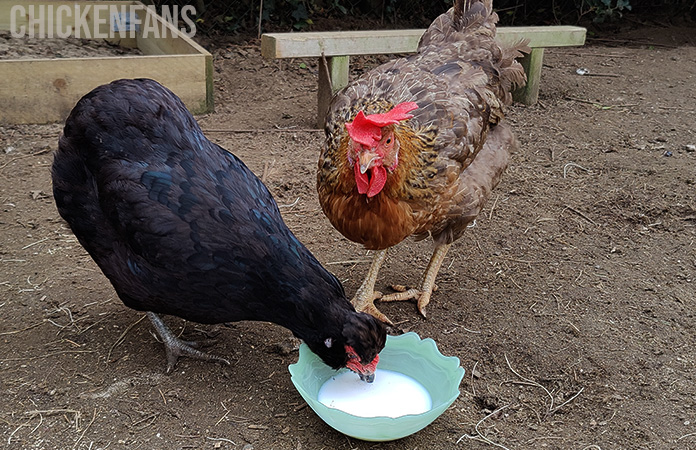
Can you use Milk to Flush a Chicken’s Crop?
No, you should not use milk to flush a chicken’s crop. Milk may help crush the blockage and lubricates the crop, but it can also ferment. Fermentation within an impacted crop will make the situation worse.
When flushing a chicken’s crop, it is best to use warm (but not hot water) or olive oil (or any other type of vegetable oil).
Can Chickens have Lactose-Free Milk?
Yes, Chickens can have lactose-free milk. Lactose-free milk is designed for those who are lactose intolerant and unable to break down lactose. Chickens lack the enzymes required to convert lactose into glucose and galactose, so lactose-free milk is a better option than regular milk.
However, chickens do not need anything other than water; it’s the only drink necessary for their health and survival.
Can Chickens Drink Raw Milk?
Raw milk is better than regular, store-bought milk. Raw milk contains enzymes that may help with its digestion, making it easier to handle for chickens. Based on where you live, there can be restrictions regarding the sale and distribution of raw dairy products.
Can Chickens have Soy Milk?
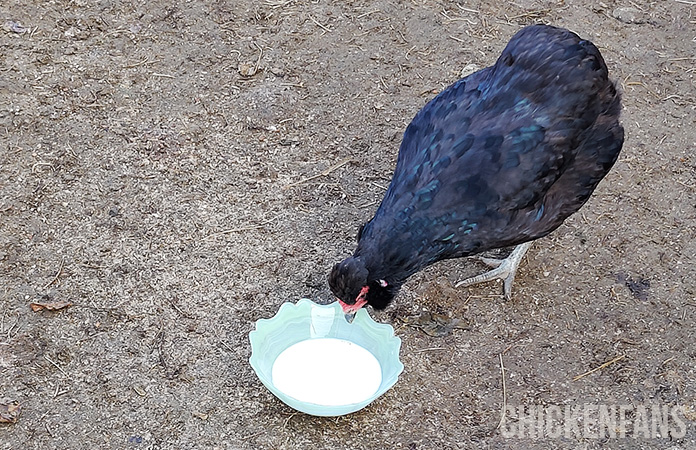
Yes, chickens can drink soy milk. Soy is considered safe and is often used as a source of protein in chicken feed. However, soy milk, on its own, is not a nutritionally balanced option for chickens and should not be the sole source of their diet.
Can Chickens Drink Chocolate Milk?
No, chickens can not drink chocolate milk. Chocolate contains theobromine which is toxic to chickens and causes stomach upset, fast breathing, seizures, and death in severe cases.
Summary
Milk, and other dairy products, should only be used as a supplement in a chicken’s diet and in limited quantities. Overfeeding milk can lead to many health problems, including diarrhea, weight gain, obesity, and toxicity. Do not use milk as the primary source of protein, calcium, and riboflavin for chickens, as safer and more natural options, like limestone and oyster shells, are available.
Related Questions
No, hens are a poultry type and are incapable of producing milk. Only mammals have mammary glands and produce milk. Some birds can produce so-called crop milk, but chickens are not among them.
No, chickens are physically incapable of suckling milk. Also, the mother hens do not have the ability to produce milk, and they do not have nipples.
Yes, baby chicks can drink milk in small amounts. However, they have delicate stomachs, and too much dairy can wreak havoc.
Yes, chickens are lactose-intolerant because they do not have the enzymes necessary for breaking down lactose into its main simple sugars – glucose and galactose. However, the term is not popularly used in birds.
Yes, studies show that milk powder supplementation in broilers can increase the feed conversion rate and cause weight gain. In other words, powdered milk improves overall growth performance.
Technically, yes. Chickens can have (unsweetened) oat milk. However, it is not an essential part of their diet. In some cases, oat milk can be used as an alternative to regular milk.
No, chickens should not drink milkshakes. The popular drink is very high in sugar and fat, and the chicken’s digestive system cannot process these nutrients.
Yes, low-fat and fat-free milk is a good alternative to regular milk. However, they are still not part of the natural diet and should be used sparingly.
Further Reads
Can Chickens eat?
- Bananas – learn about the health benefits for chickens
- Mango – we discuss whether chickens can eat sweet mango
- Oranges – the benefits and risks of feeding oranges to your flock
- Strawberries – power food for humans, but what about chickens?
- Grapes – the pros and cons of feeding grapes to chickens
Some other reads:
- Can chickens eat and taste spicy food – here we discuss the taste of chickens
- Can chickens eat onions – the risks and how onions are used as poultry supplements
- Can chickens eat chocolate – several variants of chocolate are toxic to chickens
Some articles we mentioned here:
- The chicken digestive system – how chickens digest their food
- The chicken respiratory system – how chickens breathe and why it’s so different from how we breath
If you want to learn more about chicken feed, please consult our ‘Chicken Food Page‘ to go and see every specific food article we address, including all articles on what chickens can and can not eat. Or go to our listicle food summary on ‘The Classroom‘.

Dr. I. Crnec is a licensed veterinarian with several years of experience. She has published work on the effect of vitamin supplementation, egg-laying performances of chickens under heat-stress conditions and the effects of calcium supplementation on eggshell strength.


